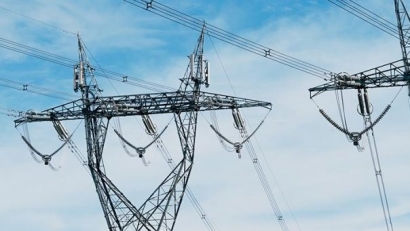
Energy Over the Next Two Decades
Five key points will shape the energy industry in the next two decades, according to industry experts.
The first is the drive toward global decarbonization. This isn't an option anymore. The industry has roughly 11 years to reverse the damage that it's done since the start of the Industrial Revolution before it becomes irreversible. The movement toward green energy is slow, but that end goal of decarbonization needs to be a priority.
Next is the shift toward decentralization. Right now, centralized energy grids are the norm, but they are prone to cascade failures during natural disasters or terrorist attacks. Microgrids may represent the answer to this problem.
Technological advancement will continue to both shape and disrupt the energy industry. The cost of solar installation, for example, is continuing to drop as technology advances and becomes more readily available.
Finally, the indusstry will continue to focus both on efficiency and on creating a more interconnected energy world. What impact will these changes have on industrial construction?
Industrial Construction and The Energy Industry
Industrial construction is used in nearly every industry, from road and maintenance to building, bridge, and forestry. That means that it will also play an enormous role in the changes that are coming to the energy industry. As a species, we need to make the transition away from fossil fuels and that will require drastic changes to the country's infrastructure to make it ready to switch to green alternatives like solar, wind, hydroelectric, and other options as they become available.
In addition to updating the country's infrastructure to move it away from centralized grids, the industrial construction sector will be necessary to supplement the existing green energy infrastructure with new solar fields, windmills, hydroelectric dams, kinetic wave power collection plants and more. The green energy industry is ready, as soon as the country decides to finally move away from fossil fuels and make that change.
The Problem of Industry Consolidation
Solar power is one of the best-known options for green energy, but the industry has faced some challenges, especially as the cost of consumer-grade solar panels continues to drop. Some companies found themselves selling panels at a loss, relying on momentum to continue to sustain their business — but it wasn't enough. These companies have started turning toward consolidation, creating massive solar platforms to pull them out of bankruptcy and support the solar business into the future.
Industrial construction could help to support this consolidation as the entire energy industry moves away from fossil fuels and toward environmentally friendly options.
Into the Future
Of the change that the energy industry is facing, the move toward decarbonization and the shift toward decentralization are going to be present the biggest changes for industrial constriction. The massive changes to the country's infrastructure, especially when moving away from centralized electric grids, will require the cooperation of the entire construction industry. We'll see more of these changes over the next two decades, but as a planet, we're running out of time to make these adjustments. Industrial construction will play an integral part in the energy industry during the next two decades. We just need to make the decision to finally move away from fossil fuels and take care of the only planet we have.

